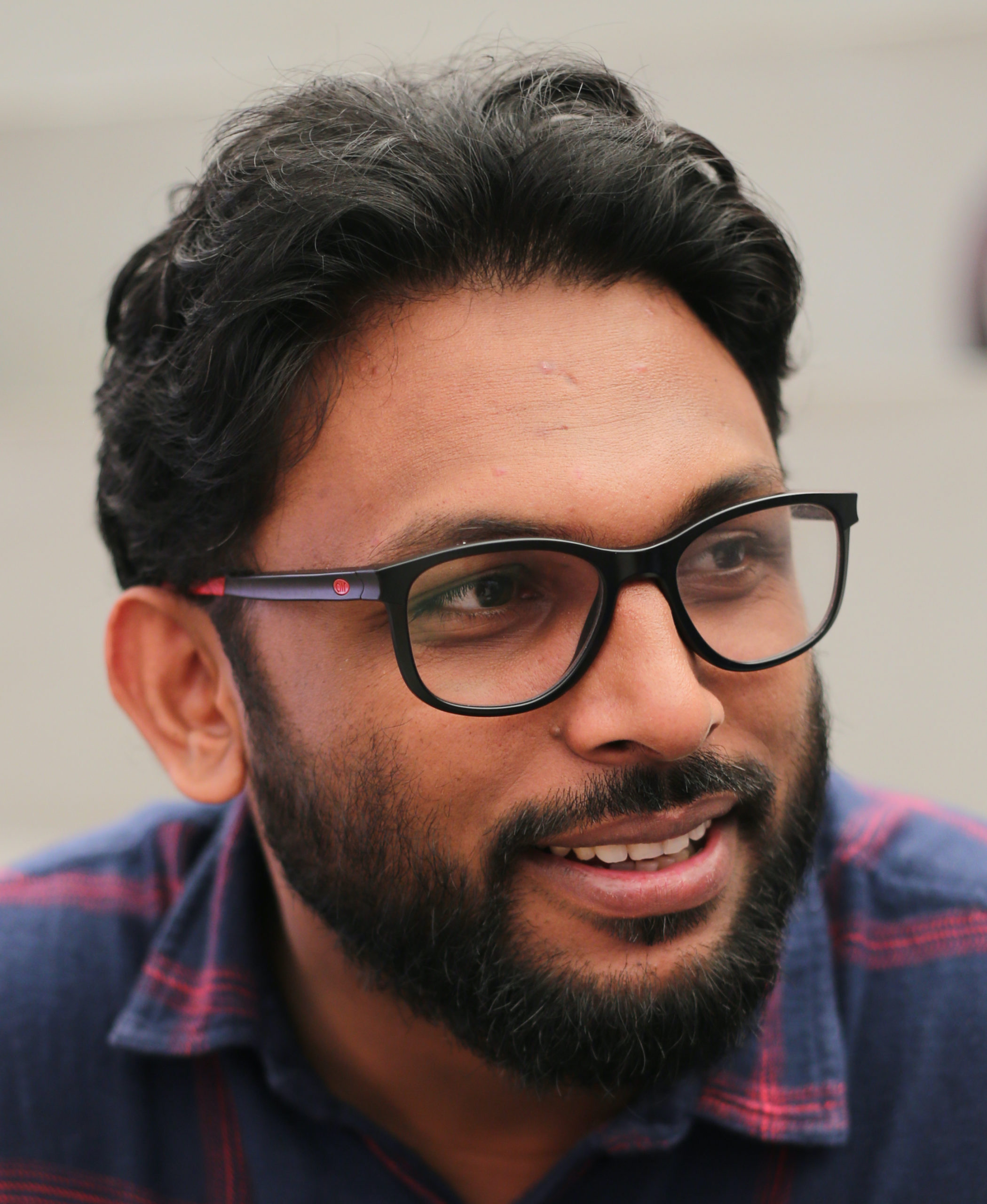
The term liberation theology was consolidated in the context of Latin America in the 1960s. Many currents of Black Liberation Theology in the United States were also developed at the same time. Immediately after the Iranian revolution and during the rise of subaltern movements across India, the first work explicitly named as Islamic Liberation Theology written in 1979 was published by Asghar Ali Engineer. At this time, feminist liberation theologies also developed as part of a minority history of mainstream currents of liberation theology. In short, there is no single origin for liberation theologies, and thus it is impossible to write a single history of liberation theology. Liberation theology is a contested category, both in terms of its naming and in the reality of what counts as liberation and theology in any given political setting.
Even so, the praxis of liberation theology across different horizons has emphasized the preferential option for those on the margins. Praxis is a hermeneutic circle of action and reflection that happens in communities of oppressed peoples and names what liberation theology is in a particular context. The struggle to determine the meaning of liberation theology as a praxis—to make it meaningful for the marginalized—has been filled with interesting twists and turns within the multiple horizons of liberation theology. Caste, gender, nation, class etc. have served as different horizons for it. The constant reinvention of text and context in liberation theology has led it to become a mode of theological engagement that always oscillates between “action and reflection-based” praxis, which in turn makes its theoretical foundation unstable.
The “decolonial turn” in liberation theology is part of a larger global decolonial praxis and also part of the reinvention of liberation theology in a new context. The decolonial turn, according to Nelson Maldonado-Torres, refers to the repositioning of power, subjectivity, and resistance beyond modernity/coloniality. Such a repositioning is made possible by creating a horizon of liberation in terms of symbols, language, being, epistemologies, and spiritualities. The emergence of decoloniality as theory and praxis has influenced the way in which scholars envision politics and theology across several fields of social theory and political praxis, including liberation theology.
The decolonial turn in liberation theology helps various liberation theologies to comprehensively connect with one another in solidarity against oppression, and, at the same time, to delink liberation theology from the elitist aspiration of the coloniality of power and knowledge in both the Global South and North. For instance, the post-Cold War world order witnessed the end of strict class-based social analysis in liberation theology. This was because this form of analysis was unable to mediate between various forms of oppression in different parts of the world. The emergence of decolonial studies and decolonial movements in the post-Cold War era has connected various modes of social analysis and resistance at a global scale. The achievement of decoloniality as a paradigm of global social theory has been to stitch together various modes of social analysis in a pluriversal conversation on liberation theology from multiple contexts of oppression. At the same time, liberation theology was primary in the formation of decoloniality itself, especially with regards to the methodological foregrounding of praxis, as well as the preferential option for those on the margins. Praxis is the common element, and common strength, that holds both liberation theology and decolonial theory together, and they both run afoul when they forget this aspect of their methodologies.
Two Components of Liberation Theology
Historically, there have been two components in the varying praxes of liberation theologies. The first component is called the “core concern.” The core concern in liberation theology has been the preferential option for the oppressed. Though it is the key component, there is no fixed meaning of the preferential option for the oppressed in all contexts. It is a type of floating signifier which escapes essentialist attempts to fix its meaning towards a final end. The second component is a “historical project.” This second component is contingent upon the historicity and context in which the core concern is embedded. The colonial and postcolonial context has determined the historical projects of different types of liberation theology by foregrounding the context of oppression in the form of class, gender, race, religion, caste, nation, ecology, etc. in any given historical context. Because of the disputed question of how to contextualize the various historical projects that have been carried out in its name, there has been a struggle to determine the meaning of liberation theology.
The decolonial turn in liberation theology helps various liberation theologies to comprehensively connect with one another in solidarity against oppression, and, at the same time, to delink liberation theology from the elitist aspiration of the coloniality of power and knowledge in both the Global South and North.
During the heyday of liberation theologies, the postcolonial historical project in terms of class— or “the poor”—was an over-determining factor. Later, gender became a central paradigm after the rise of various feminist theologies in Islam, Christianity, Judaism, and Buddhism. These complicated the strict class analysis of the early historical projects of liberation theology. In the context of Islamic liberation theology, categories that changed the shape of liberation theology included the “poor” and “powerless and rightless masses” (Shabbir Akhtar); the “other,” “marginalized,” or “oppressed” (Farid Esack); and the “subaltern” or “multitude” (Hamid Dabashi). These complicated both the historical project and core concerns of Islamic liberation theology.
The emergence of a decolonial turn, however, more radically changed the meaning of the historical project and core concerns of liberation theology. The coloniality/decoloniality paradigm of Enrique Dussel was more sensitive in understanding the problem of the preferential option for the oppressed as a core concern within a decolonial historical project. Dussel defined this preferential option as an “other” within the periphery of the modern/colonial world-system. The Dusselian notion of the “other” is a broader decolonial category of alterity than the preferential option for the poor in traditional liberation theology. It is without the baggage of economic determinism or other forms of eclecticism that were present in earlier avatars of liberation theology, and contains within it a strong emphasis on praxis.
Limits of the Decolonial Turn in Liberation Theology
The decolonial turn in theology was an immanent phenomenon that emerged through the fragmented/dispersed epistemologies of various liberation theologies. The multiple experiences and theories of liberation theology from different contexts enriched and contributed to the arrival and emergence of the decolonial turn in liberation theology. For instance, Latin American liberation theology and Africana liberation theology see “race” as an organizing principle of religion and liberation after the decolonial turn. The earlier attempts to find a common denominator for different types of liberation theology failed due to the lack of a coherent narrative that could bind different geographies and epistemologies together in terms of colonial experience. In other words, the counter-hegemonic efficacy of a global liberation theology as pluriversal praxis was not historically successful due to the absence of a global paradigm such as decoloniality.
The decolonial turn in liberation theology situates the coloniality of being, knowledge, and power as part of a global struggle, without reducing the complexities of “local” contexts. For instance, a dialogue between the politics of caste—a major historical project in understanding South Asia—and decolonial paradigms around race in other parts of the world demands serious attention. This critical dialogue has the potential to change the decolonial turn in South Asian liberation theologies in particular, and in turn can influence more generally the global praxis of decolonial liberation theology. The pluriversal construction of various horizons of liberations in the decolonial turn is thus a unique advancement of the praxis of the marginalized in different social and political contexts.
The evolving praxis of a decolonial liberation theology underscores that the conversation between decoloniality and liberation theology is not unidirectional. The historical experience of liberation theology as a praxis teaches us that there is a need to develop a critical eye towards the way contemporary decolonial scholarship has failed to emphasize praxis. Like the history of liberation theologies, the decolonial turn must not become another elitist exercise in the production of knowledge/power. The evolution of liberation theology all over the world has demonstrated that the praxis of the marginalized has repeatedly built new horizons of liberation. This strong methodological emphasis on praxis marks the uniqueness of liberation theology. In a recent introduction to decoloniality, Walter Mignolo and Catherine E. Walsh write about praxis without foregrounding it as the first step in the decolonial method. Against this seeming error, the foregrounding of praxis must come as the first methodological step for the decolonial turn in liberation theology. The problem space of praxis makes the decolonial turn in liberation theology an unfinished, unstable, and ongoing process of liberation.
The author is grateful to Iskander Abbasi, Joshua Lupo, and Atalia Omer for their valuable suggestions and comments on previous drafts.

